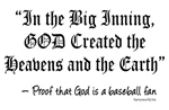Comiskey being posthumously inducted in baseball's Hall of Fame in 1939 after passing away October 25th, 1931 was a sign that MLB respected his accomplishments. He was a revolutionary player in the late 1800s and became player manager as a 25 year old with the St Louis Browns of the American Association. He was a decent player, but a better manager. After three separate stints as manager of the Browns, he managed in Cincinnati with the Reds and for the St Paul Saints/ Chicago White Sox teams of 1895-1900.
It was what he did after he became owner. He built a competitive team from 1905-1908 and after being in the middle of the pack for the next 6 seasons, he built a very good team after that. Players like Ed Cicotte, Buck Weaver, Eddie Collins and Ray Schalk made the team as good as anybody in the game. Happy Felch and Shoeless Joe Jackson were the final pieces as the team finished 3rd in 1915 (despite 93 wins), 2nd in 1916 and then won the World Series in 1917. The war in 1918 messed up things for a lot teams, particularly the White Sox. It was a down year, but they were back on top in 1919, winning the AL Pennant making them heavily favorited to win the World Series that season.
Of course, we all know what happened before and during that series. Players like Collins and Schalk were protected by their multiyear contracts, separating them from the other players. Comiskey did as many owners did back then, reduced salaries of several players to their dismay. This led the faction, led by Cicotte and Lefty Williams, to take the gamblers money to throw the World Series. Jackson was involved, taking money despite having a very good series. Schalk was frustrated, getting ejected from game five, as he seen something was up when Cicotte and Williams kept shaking off his signs during the first two games of the series. Schalk reportedly attacked Williams after game two accusing him of not trying.
The issue the White Sox players had with Comiskey should have no way enticed them to do what they did. Granted, the players were not getting paid very much to begin with, so it is understandable how devistated the players must have felt after having their salaries reduced before the 1919 season. Many deserved a raise, not a deduction. But, in Comiskey's defense, he was not the only owner to do such things. Connie Mack was known to do that to well known players all the time and those players were either traded or wound up playing somewhere else. Thats why Cicotte, Williams, Jackson and the others should have done.
Comiskey made the HOF for what he did as a player, manager and owner after the incident of 1919. The White Sox stadium, "Comiskey Park" was in his name and lasted from 1910-1990, well after his passing. Yes, it is understood that anybody around the 1919 White Sox deserved to have their image tarnished. But, though Comiskey had his role by upsetting the players, he was not responsible for the team throwing the series. Some have said he tried to cover it up, but he hired a private investigator and his demise after the players were banned showed the thing really effected him. A perfectly healthy man died about 10 years after the decisions were handed down. Comiskey also choose not to replace the players he lost after the bans were given out. Charlie Comiskey should be remembered for what he did as a player, manager, player-manager and owner and not what his players chose to do when they nearly destroyed MLB in 1919.

 RSS Feed
RSS Feed
